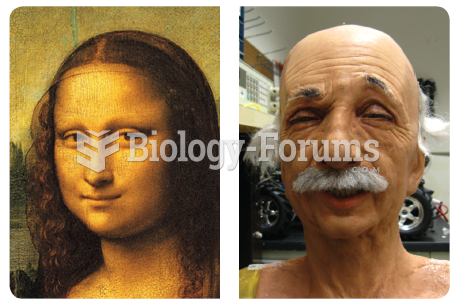|
|
|
Multiple experimental evidences have confirmed that at the molecular level, cancer is caused by lesions in cellular DNA.
In most cases, kidneys can recover from almost complete loss of function, such as in acute kidney (renal) failure.
The term pharmacology is derived from the Greek words pharmakon("claim, medicine, poison, or remedy") and logos ("study").
Prostaglandins were first isolated from human semen in Sweden in the 1930s. They were so named because the researcher thought that they came from the prostate gland. In fact, prostaglandins exist and are synthesized in almost every cell of the body.
The Food and Drug Administration has approved Risperdal, an adult antipsychotic drug, for the symptomatic treatment of irritability in children and adolescents with autism. The approval is the first for the use of a drug to treat behaviors associated with autism in children. These behaviors are included under the general heading of irritability and include aggression, deliberate self-injury, and temper tantrums.
 Positron emission tomography (PET) image showing the difference in the metabolic activity of the bra
Positron emission tomography (PET) image showing the difference in the metabolic activity of the bra
 Edward Bellamy, author of the utopian novel Looking Backward (1888) Bellamy’s socialism worried many
Edward Bellamy, author of the utopian novel Looking Backward (1888) Bellamy’s socialism worried many
 The Power and Control Wheels of Abusive Relationships When one person in a relationship repeatedly ...
The Power and Control Wheels of Abusive Relationships When one person in a relationship repeatedly ...




